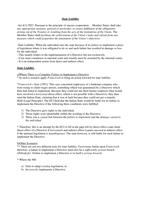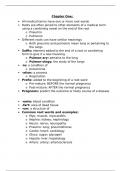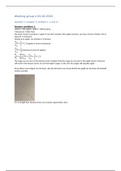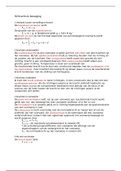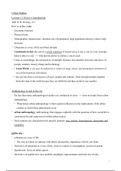Exam (elaborations)
State Liability
- Module
- EU Law
- Institution
- University Of Leicester (LE)
EU Law exam notes written from textbooks and lectures for State Liability. Formatted to be memorised and contains all the necessary information to achieve a 2:1 or 1st on the exam.
[Show more]
